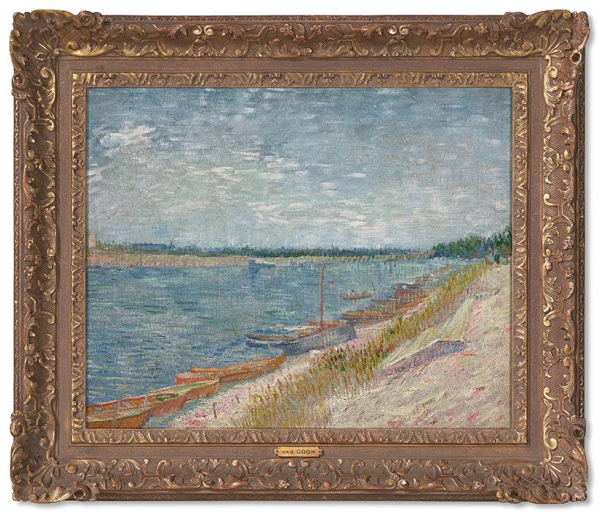

Vincent van Gogh arrived in Paris in 1886 to join his brother and gallery manager Theo, where the unknown painter became fascinated with its vibrant social scenes as the cultural and art center of Europe.
During his two-year stay in Paris before relocating to southern France, Van Gogh gained new insights into modern art. The enthusiastic Parisian lifestyle inspired bright colors in his works, a transition from the dark tones and moodiness he portrayed during his time in Amsterdam.
Among the sites he painted included Asnieres, a village north of Paris along the Seine, which was a retreat from the hustle and bustle of the city. There, Van Gogh deeply embraced nature's colors and a leisurely, peaceful lifestyle.
Meanwhile, he attempted to individualize his artistic approach by depicting the plants, flowers and the sun's radiance, rather than the farmers he had previously focused on.
This attempt is revealed in Les canots amarres (Moored Canoes) in which Van Gogh illustrated a serene riverside scene in Asnieres of moored boats, blooming flowers and the cloudy sky. His brushstrokes in this piece exhibit a transformative stage in his career.
The landscape of 1887 also reflects his introduction to Japanese woodcuts in Paris, of which the cropping composition and the color contrasts were adopted and explored by Van Gogh in establishing his distinctive painting style.
The painting is being exhibited in Beijing and will travel to Shanghai on Sept 7 and 8 before going under the hammer at Christie's auction house in Hong Kong on Sept 26.